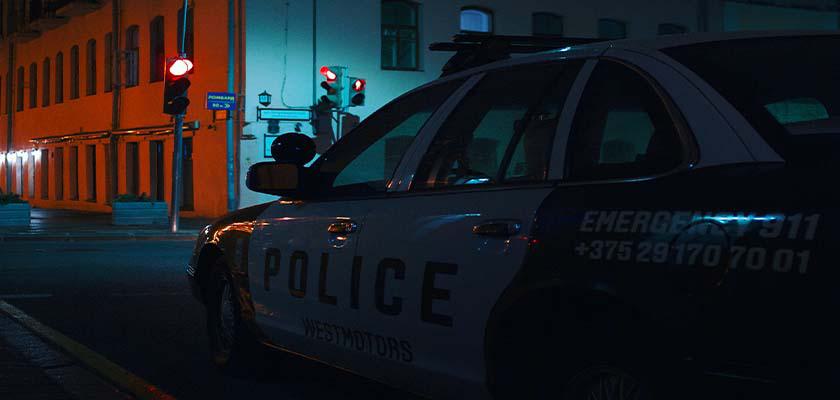"We don’t get much revenue off tickets anyway.”
Police chiefs in Alabama, like Moody Police Chief Thomas Hunt, are watching the 2022 Alabama Regular Legislative Session as some bills introduced could impact their operations. But a new bill introduced that would cap ticket revenue won’t impact his department much, he said.
Due to recent controversies in Alabama concerning alleged abuses by at least one police department, Lt. Gov. Will Ainsworth is taking action in the legislature.
"The lucrative fines generated from tickets that were wrongly issued and charges that were wrongly filed against passing motorists fueled the renegade actions and 'anything goes' atmosphere within the Brookside Police Department," Ainsworth said.
The city of Brookside was accused of rampant over-ticketing, harassment, bullying, threats, fraudulent charges and more. In the wake of the accusations, Brookside Police Chief Mike Jones resigned, and an audit is underway on the department’s engagements with the public. The second in command at the department, Lt. James B. Savelle, also resigned.
House Bill 389 (HB389) is being carried in the House by Rep. Louise Alexander (D–Bessemer). The purpose of HB389 is to restrict the amount of revenue that police departments are allowed to earn from issuing tickets. The bill is limited to the fines and fees collected explicitly from traffic tickets and citations.
Hunt said he isn’t concerned about losing that revenue, as it is not a deciding factor in his department's ability to operate.
"For my operations, it really would not affect us that much,” Moody Police Chief Thomas Hunt told 1819 News. "We don’t get much revenue off tickets anyway; that’s what a lot of the public doesn’t realize. Off of a standard speeding ticket, a city might only receive three or four dollars from it; the rest of it goes to the state.”
However, Chief Chris Blankenship, with the Abbeville Police Department, said the change could impact smaller departments.
“I’m sure, throughout the state, there are several departments that are smaller agencies," Blankenship said. "Without that income from that court system or anything else, the police department couldn’t function. I know that’s a slippery slope to be on because you have the potential there of a situation like Brookside, where people now are going to criticize you and say that all you're doing is going out there to write tickets just to make money to turn around to provide x, y, and z with.”
The proposed bill states that if a police department collects ticket revenue in excess of 10% of its annual operating budget, any additional funds must be deposited into two different government organizations: The Crime Victims' Compensation Fund and the Fair Trial Tax Fund.
Ainsworth believes the bill would discourage over-ticketing.
"By restricting the revenues that municipalities may generate from traffic fines and penalties to a reasonable level, we can simultaneously limit the temptation for abuses like those in Brookside to occur elsewhere,” said Ainsworth.
Blankenship said his department doesn’t factor in ticket revenue during budget planning, so he isn’t worried about a harsh impact if the bill becomes law.
"I’m not out there thinking in my mind ‘we need to, at least, write 100 tickets this month or we’re not going to have the money in our budget to pay this or that,” Blankenship said.
But he said there should be another way to ensure smaller departments are not put in a bad position.
“I don’t think it should be a blanket thing all the way across the board with a certain percentage,” Blankenship said. “Because there may be certain departments that are doing things the right way, who still depend a lot on that revenue just to keep their police department afloat to provide services for their citizens. And if you take that away from them, some of those services may not be provided to their citizens if they don’t have that funding.”
Both Blankenship and Hunt said most revenue from ticketing goes to the state. Blankenship said furthermore, any percentage that the municipality receives goes to his city’s general fund, not the police department.
To connect with the author of this story, or to comment, email craig.monger@1819news.com.










